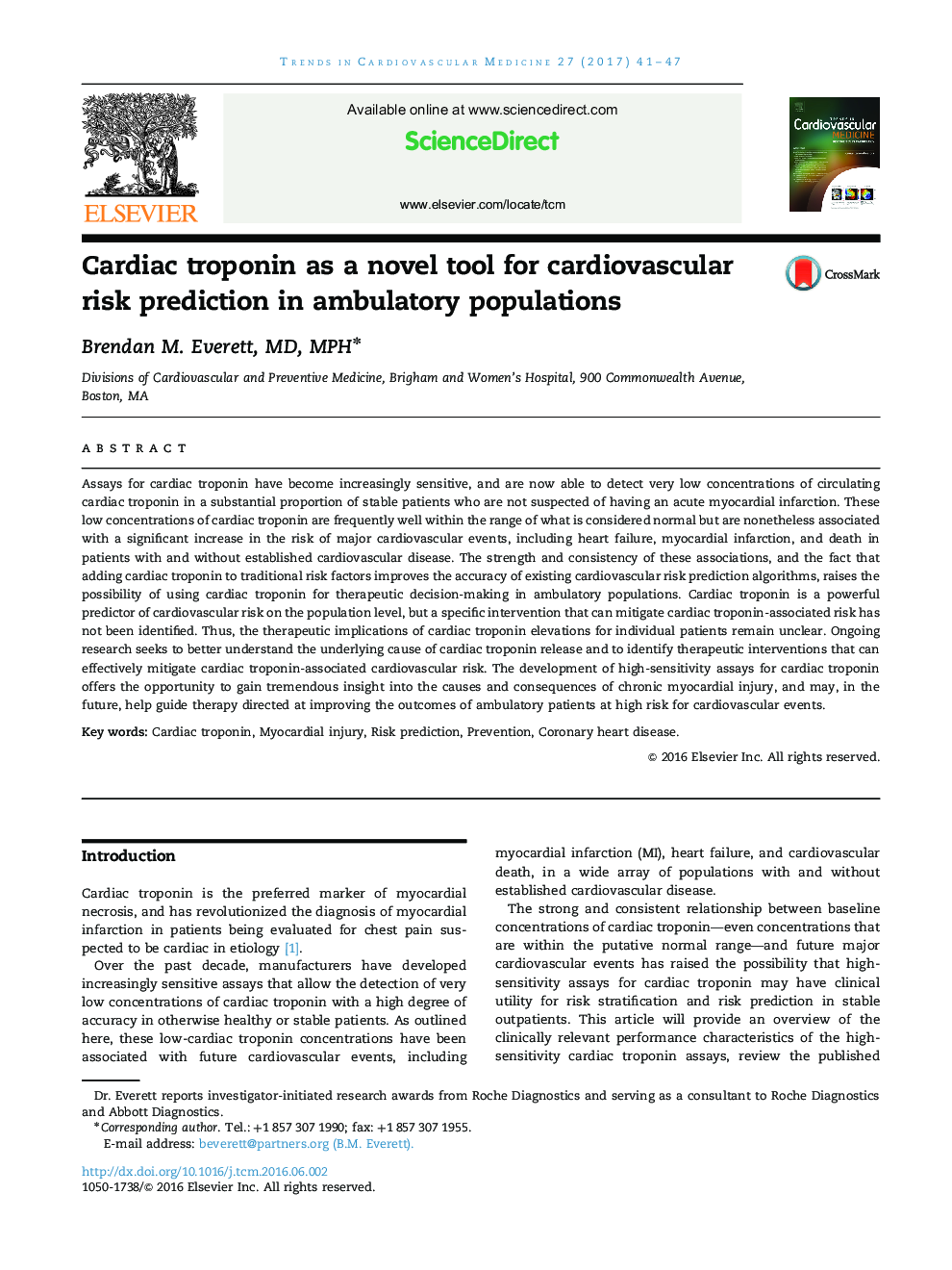| Article ID | Journal | Published Year | Pages | File Type |
|---|---|---|---|---|
| 5622386 | Trends in Cardiovascular Medicine | 2017 | 7 Pages |
Assays for cardiac troponin have become increasingly sensitive, and are now able to detect very low concentrations of circulating cardiac troponin in a substantial proportion of stable patients who are not suspected of having an acute myocardial infarction. These low concentrations of cardiac troponin are frequently well within the range of what is considered normal but are nonetheless associated with a significant increase in the risk of major cardiovascular events, including heart failure, myocardial infarction, and death in patients with and without established cardiovascular disease. The strength and consistency of these associations, and the fact that adding cardiac troponin to traditional risk factors improves the accuracy of existing cardiovascular risk prediction algorithms, raises the possibility of using cardiac troponin for therapeutic decision-making in ambulatory populations. Cardiac troponin is a powerful predictor of cardiovascular risk on the population level, but a specific intervention that can mitigate cardiac troponin-associated risk has not been identified. Thus, the therapeutic implications of cardiac troponin elevations for individual patients remain unclear. Ongoing research seeks to better understand the underlying cause of cardiac troponin release and to identify therapeutic interventions that can effectively mitigate cardiac troponin-associated cardiovascular risk. The development of high-sensitivity assays for cardiac troponin offers the opportunity to gain tremendous insight into the causes and consequences of chronic myocardial injury, and may, in the future, help guide therapy directed at improving the outcomes of ambulatory patients at high risk for cardiovascular events.
